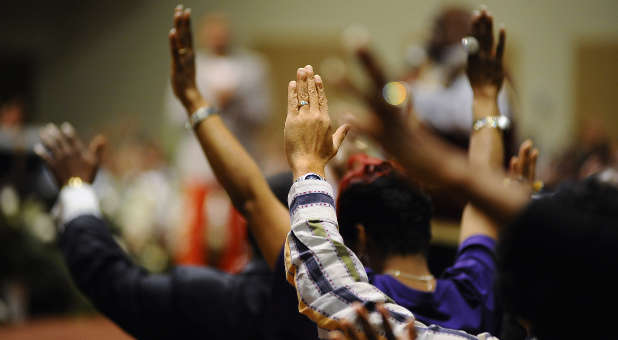Read Time: 3 Minutes 37 Seconds
Americans experienced seismic changes over the past two years, including, for many, how they attend church. The shift in behavior coincides with a shift in theology.
The biennial State of Theology study conducted by Lifeway Research found relative stability in some of the religious and cultural beliefs U.S. adults hold. After months of quarantines and social distancing, however, Americans increasingly believe worshiping apart from a church is as good as attending church services.
In March 2020, as the COVID pandemic was just beginning in the United States, 58% of Americans said worshipping alone or with one’s family was a valid replacement for regularly attending church, with 26% strongly agreeing. In 2022, 66% believe worshiping apart from a local congregation is as valid as worshiping with one, with 35% strongly agreeing.
Additionally, most Americans (56%) don’t believe every Christian has an obligation to join a local church. Fewer than two in five (36%) say this is something all Christians should do.
Tracking surveys from Lifeway Research throughout the pandemic found U.S. Protestant churches were open at pre-pandemic levels by summer of 2021 and into 2022, but early this year few churches had reached pre-pandemic attendance levels.
“Religious identity, beliefs and behavior are interrelated,” said Scott McConnell, executive director of Lifeway Research. “When in-person church attendance behaviors were interrupted and habits were broken, it affected some Americans’ beliefs about the need to gather with other believers to worship.”
With many theological beliefs remaining stable, those that did shift point to areas where a changing U.S. culture may be impacting Americans’ religious perspectives.
The 2022 State of Theology study, sponsored by Ligonier Ministries, surveyed more than 3,000 Americans and follows previous versions in 2014, 2016, 2018 and 2020.
God-sized confusion
Most Americans believe in God, but they’re a little confused about who the divine is.
While 66% of U.S. adults say God is a perfect being and cannot make mistakes, half (51%) say God learns and adapts to different circumstances.
Almost seven in 10 Americans (67%) say God accepts the worship of all religions, including Christianity, Judaism and Islam. A similar percentage (71%) say there is one true God in three persons: God the Father, God the Son and God the Holy Spirit.
Despite a majority of Americans affirming a Trinitarian God with three divine persons, most still aren’t sure about how that applies to Jesus or the Holy Spirit. Slightly more than half (55%) believe Jesus is the first and greatest created being. Another 53% say He was a great teacher but not God. Close to three in five (59%) believe the Holy Spirit is a force but not a personal being.
When thinking about these theological convictions, most Americans classify them as opinions not facts. For 60% of U.S. adults, religious belief is a matter of personal opinion; it’s not objective truth.
“Many Americans think about God as if He had only revealed himself in a vague, nondescript way. They seem to fill in the gaps with whatever they want to believe,” said McConnell. “This creates sharp contrasts between what Americans believe about God and how He revealed himself in great detail in the Bible.”
Social issues and sin
Hot-button cultural issues often intersect with theological beliefs, and Americans often aren’t sure how to balance the two. A growing number says Christians should stay out of the discussion.
While three in four Americans (78%) say God created male and female, they’re more split on whether gender identity depends on personal preference. More than two in five (42%) say gender identity is a matter of choice, the highest in the history of the State of Theology. Half (51%) disagree. The American public is more divided than American pastors. A 2020 study of U.S. Protestant pastors found 72% believe it is morally wrong for an individual to identify with a gender different than the sex they were born.
Half of U.S. adults (53%) say sex outside of traditional marriage is a sin, while 42% disagree. Those who view non-marital sex as sinful has increased slightly but steadily since 49% said the same in 2016.
Americans are also split on whether the Bible’s condemnation of homosexual behavior is still applicable. Slightly less than half (46%) say it doesn’t apply today, and 42% disagree.
Additionally, Americans are closely divided over the issue of abortion. While 53% say abortion is a sin, 39% disagree. Still, a previous Lifeway Research study specifically on abortion found 12% of U.S. adults say abortion shouldn’t be legal in any situation. When asked specifically what time period they believe abortion should be a legal option assuming there are no health issues for the woman or the fetus, half of Americans say no later than 12 weeks.
Three in 10 Americans (30%) say Christians should stay silent on political issues, an increase from 24% in 2020 and the highest percentage recorded in any previous State of Theology study. Around three in five Americans (61%) disagree.
For the rest of this article, visit research.lifeway.com. {eoa}
Bring Charisma magazine home with a subscription today!
See an error in this article?
To contact us or to submit an article





















